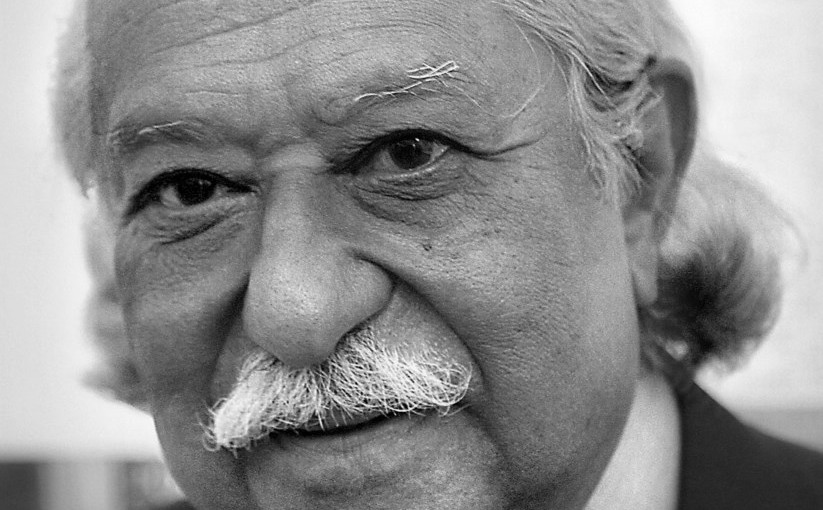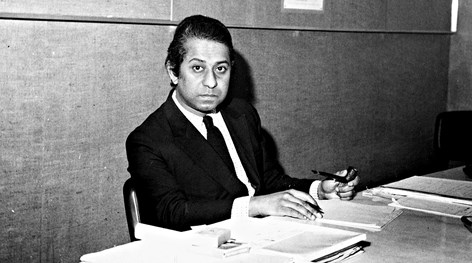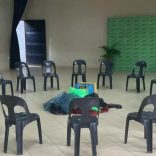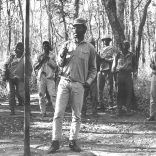Mozambique: Moreira Chonguiça revisits Gito Baloi’s 'Na Ku Randza' in moving tribute
Portugal PM likely to release a book in Goa: Written by born in Mozambique father, Orlando Costa

File photo / Orlando Costa
During his two day visit to the state, where he traces his paternal roots, Portugal’s Prime Minister Antonio Costa is likely to release the English translation of his father, the renowned poet and writer Orlando Da Costa’s Portuguese play Sem Flores Nem Coroas (Without Flowers or Wreaths).
The three-act play, set in a house where the family is grieving the death of one of its members on the night of Goa’s Liberation, is being translated under the recently inaugurated Joaquim Heliodoro da Cunha Rivara Chair on Indo-Portuguese language at the Goa University (GU) in collaboration with Camoes Instituto da Cooperacao e da Lingua Portuguesa.
Orlando Da Costa, born in Mozambique, spent his growing years in his ancestral house on Rua Abade Faria, Margao, along with his brother Joao before they left for Lisbon. Joao went on to become a chemical analyst and moved back to Goa. He passed away six years ago and is survived by his Finnish origin wife Sinikka Jussailainen Costa, her daughter Anna Kaarina Costa and her family, who continue to live in the same house in Margao today.
The Portugal PM is also likely to pay tribute to historian and former director of Fundacao Oriente, the late Paulo Varela Gomes, and posthumously award him with a Cultural Merit Medal. Gomes’ wife Patricia Vieira will accept the award at the event on the morning of January 11 at Fundacao Oriente’s headquarters in Fontainhas.
Antonio Costa is expected to meet Prime Minister Narendra Modi on January 7 in New Delhi when he is expected to sign MoUs that will improve bilateral relations between the two countries. He will then spend two days in Bengaluru where he has been invited as chief guest for the Parvasi Bharatiya Diwas. He is also scheduled to attend the Vibrant Gujarat 2017 Summit before he visits Goa on January 11 and 12.
 Orlando António Fernandes da Costa (July 1929 − 27 January 2006) was a Portuguese writer. He was an eminent novelist and poet, author of the prize-winning novels O signo da ira (1961) and O Último Olhar de Manú Miranda (2000), and of many other literary works.
Orlando António Fernandes da Costa (July 1929 − 27 January 2006) was a Portuguese writer. He was an eminent novelist and poet, author of the prize-winning novels O signo da ira (1961) and O Último Olhar de Manú Miranda (2000), and of many other literary works.
Of Goan descent on his father Luís Afonso Maria da Costa’s side and of Portuguese and French on his mother Amélia Maria Fréchaut Fernandes’ side, he was born in Lourenço Marques, Mozambique, a Portuguese colony at the time. He spent his youth in Margao, Goa, Portuguese India, another Portuguese colony.
At the age of 18, he left Goa and traveled to Lisbon, where he studied history and philosophy at the local university. In 1951, Costa published his first work, a poetry book entitled A Estrada e a Voz. He continued publishing, not only poetry, but also drama and romance.
During the 1950s, Orlando da Costa spent most of his time in the House of the Students of the Empire, an institution mainly built to house students from the colonies that were studying in the metropole. There, he came in contact with many of the future leaders of the nationalist movements of the colonies, such as the MPLA, the FRELIMO and the PAIGC.
Between 1950 and 1953 he was arrested three times by the Salazar government. Orlando da Costa joined the Portuguese Communist Party in 1954, during the dictatorial regime of Oliveira Salazar, when the Party was still outlawed. He developed his work as a communist in the intellectual sector of the Lisbon region.












Leave a Reply
Be the First to Comment!
You must be logged in to post a comment.
You must be logged in to post a comment.